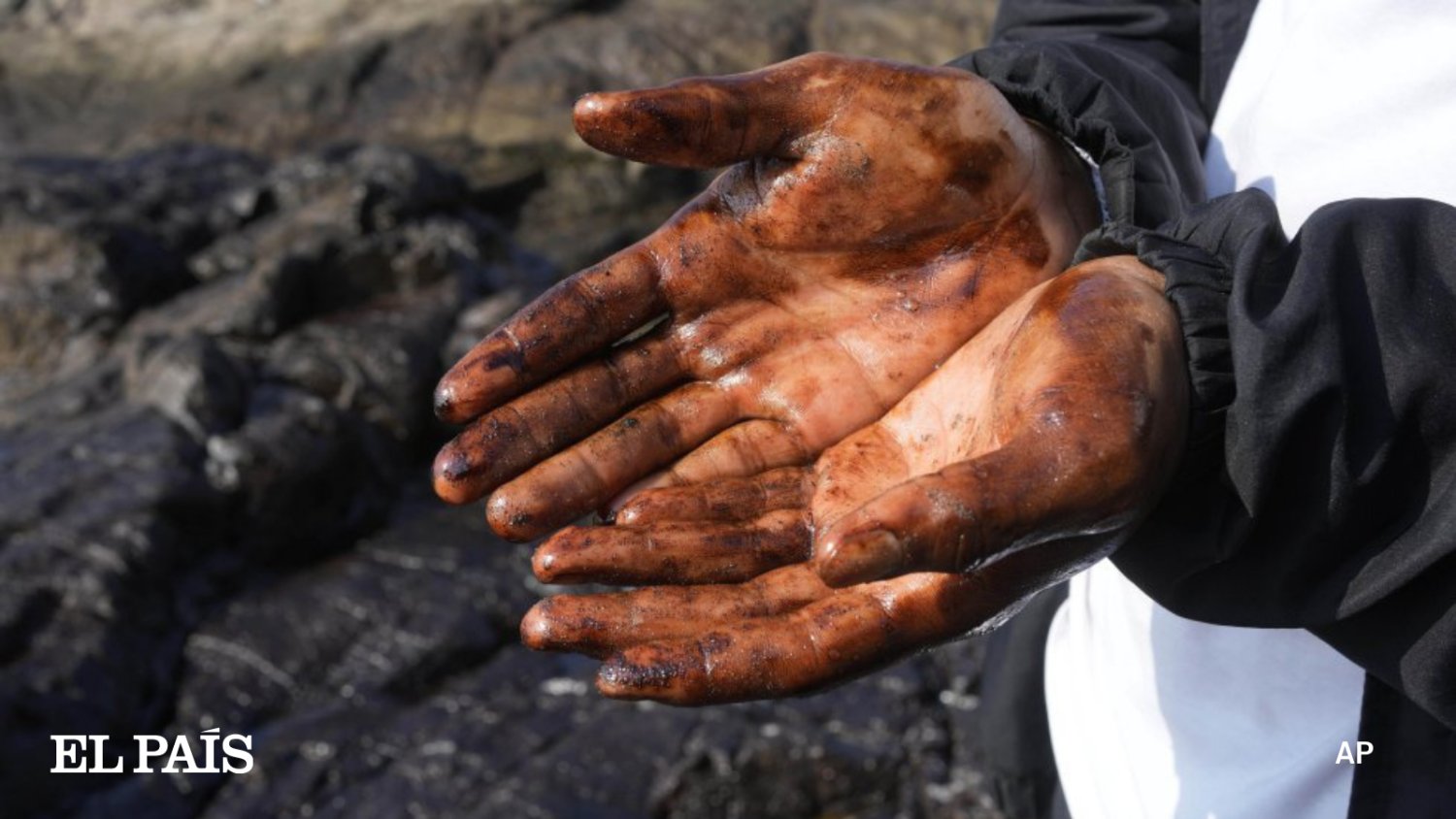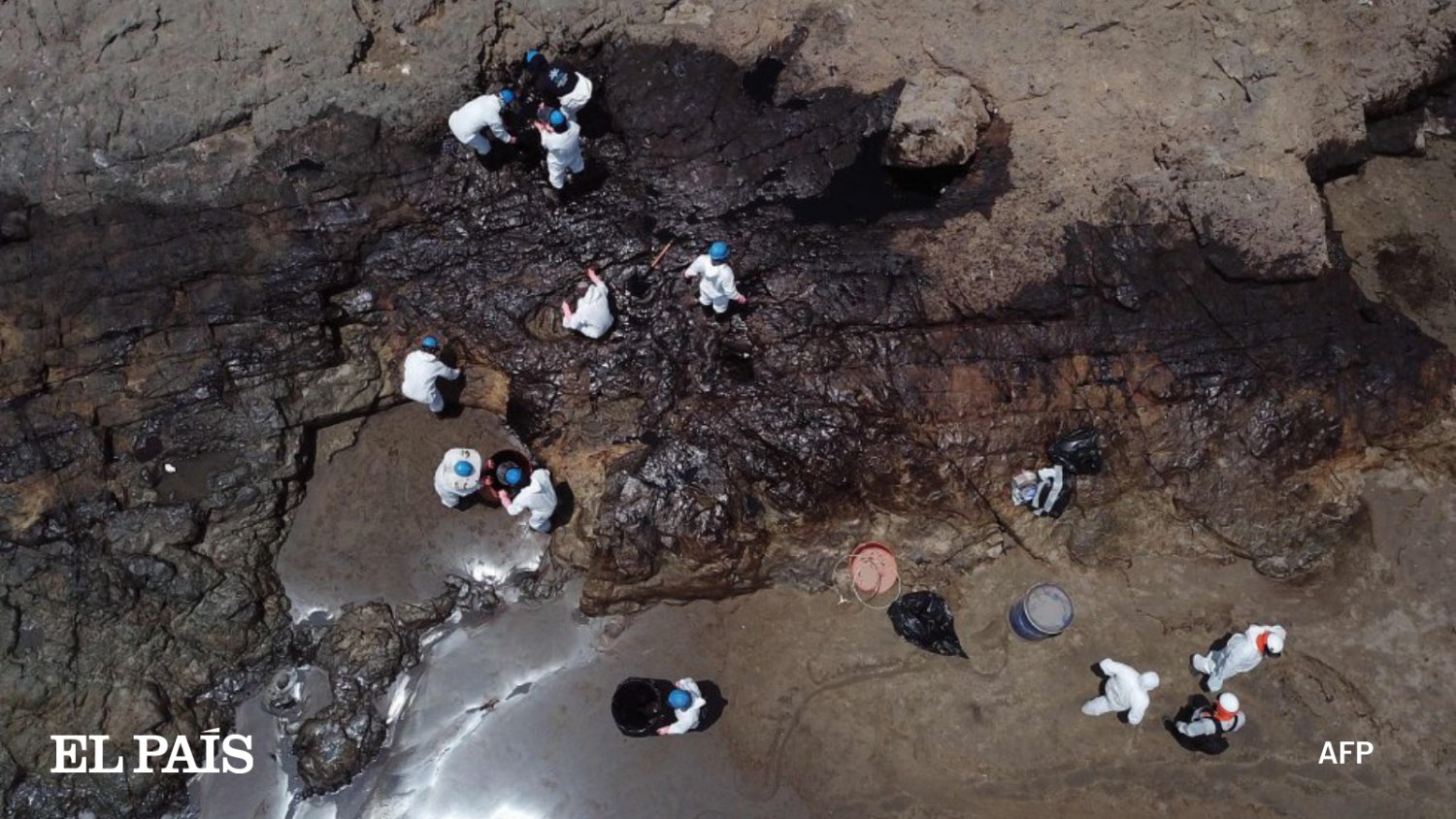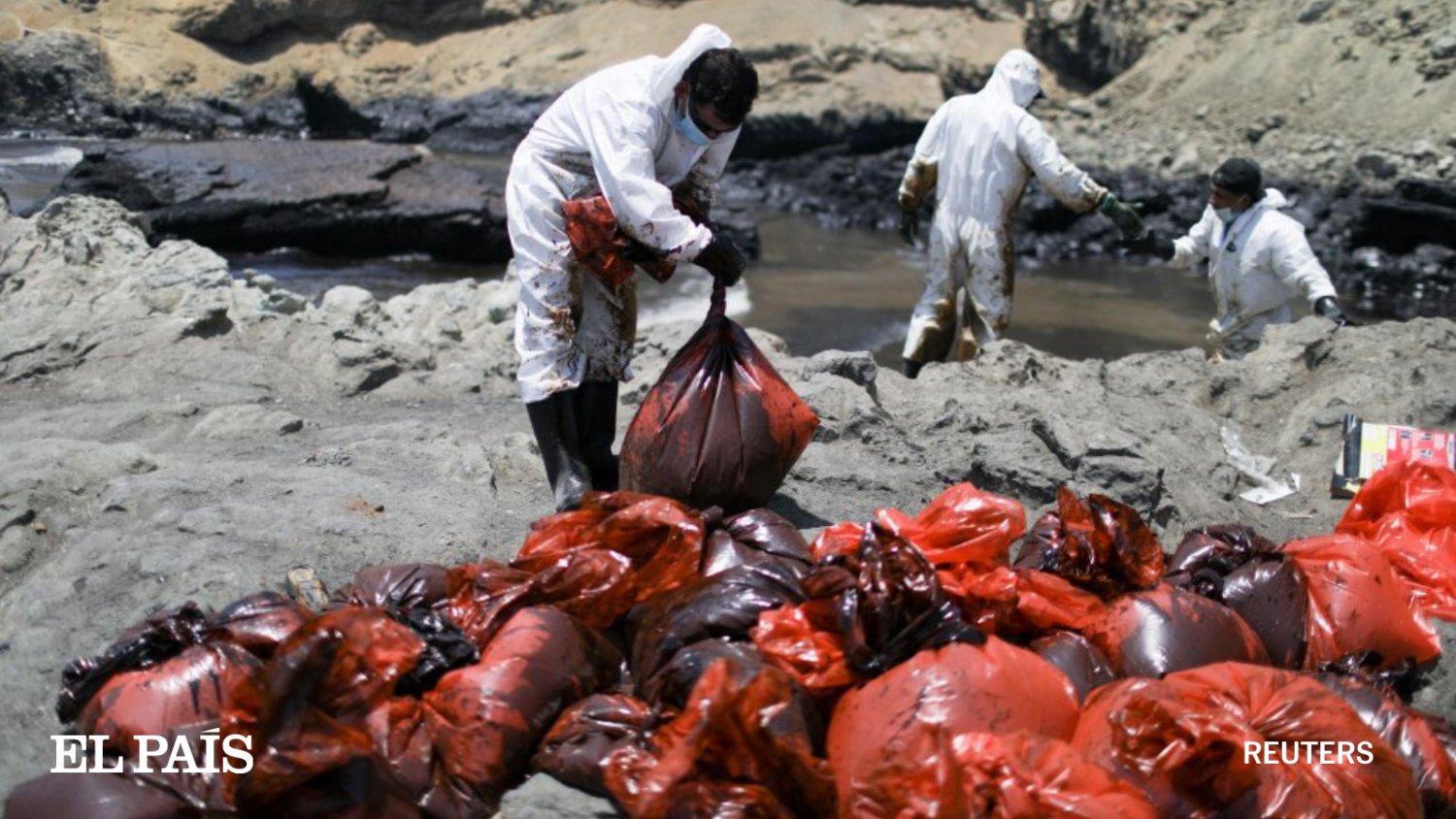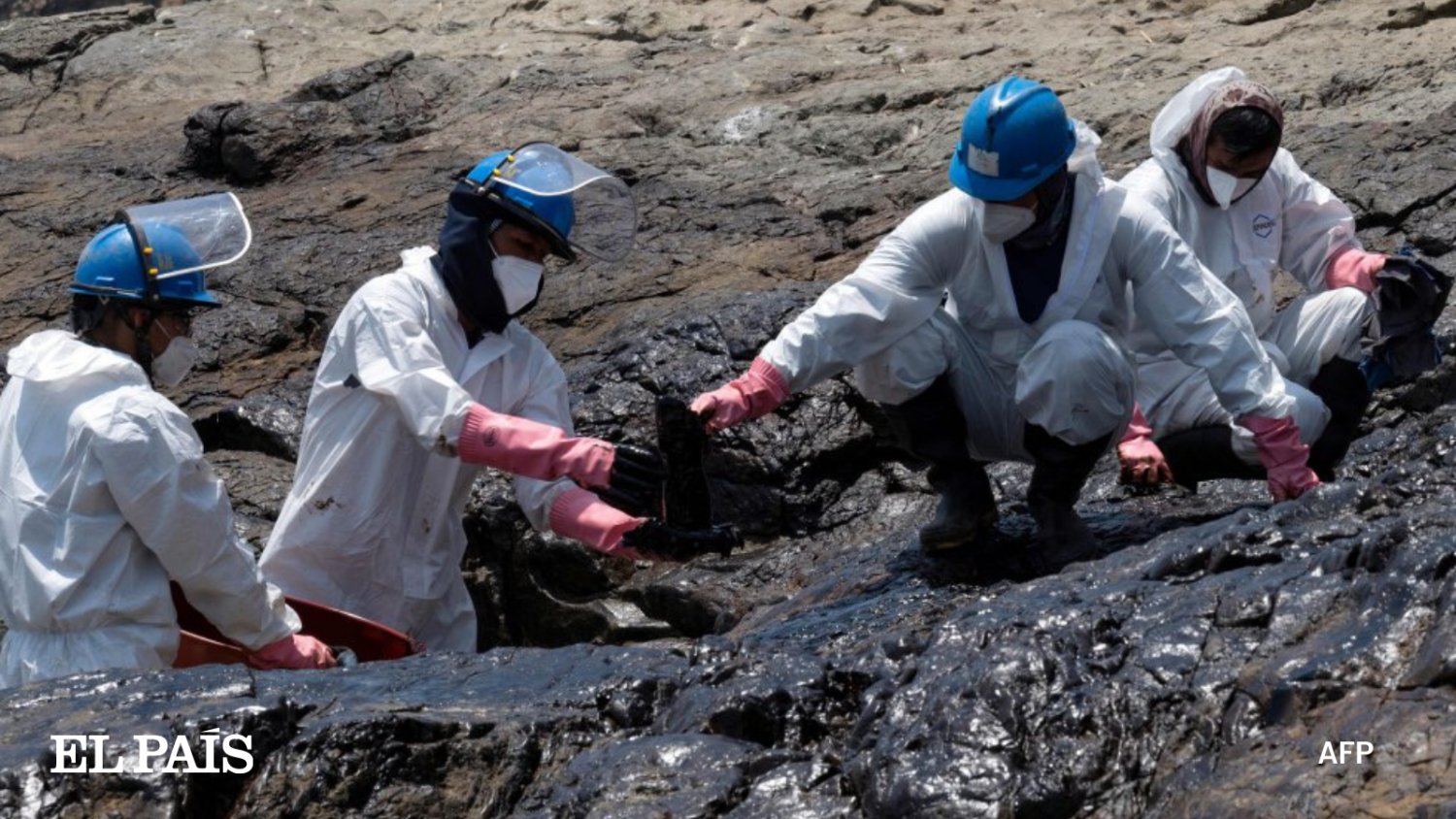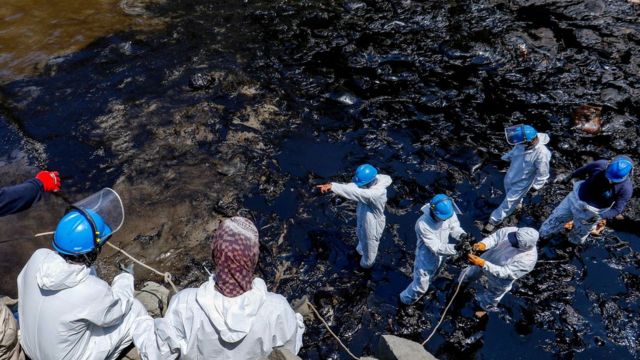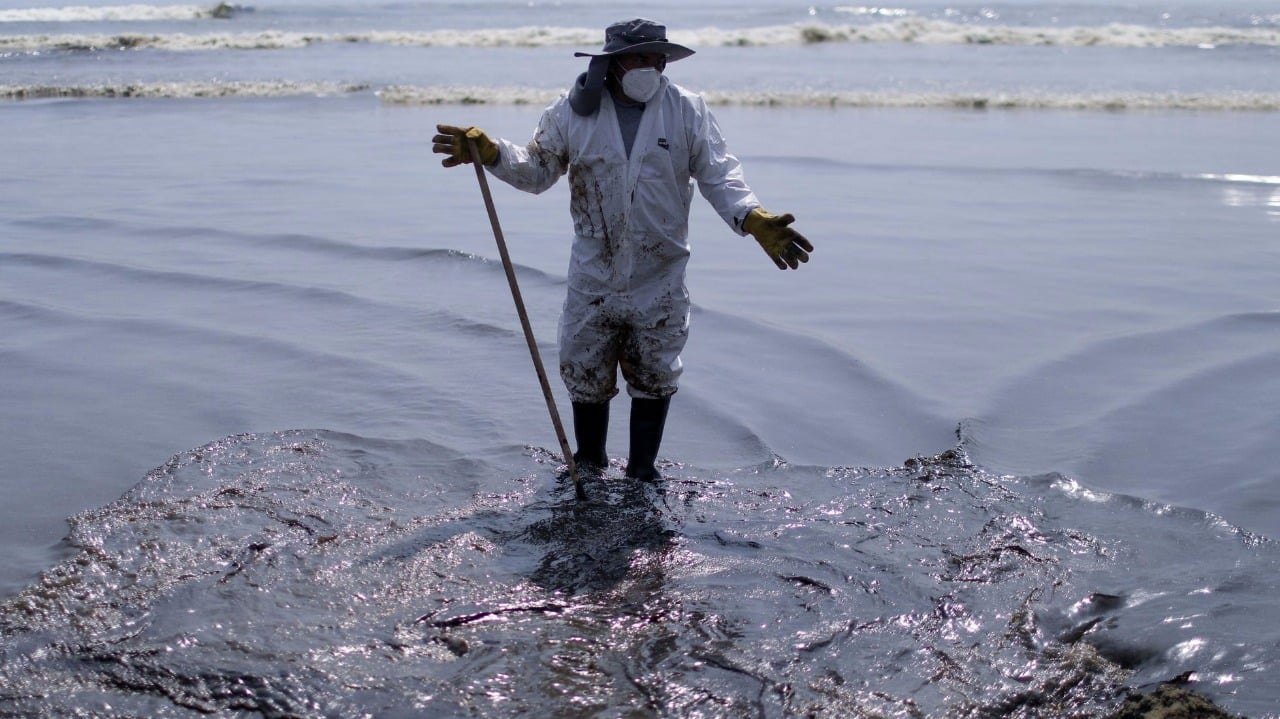Mon 24 January 2022:
A spill produced by freak waves from a volcano eruption in the south pacific prompted the Peruvian government to declare an environmental emergency on Saturday.
Last Saturday, a massive undersea volcano in Tonga erupted, unleashing tsunami waves that reached as far as the United States.
Beaches have been polluted, wildlife have been killed, and tourism has suffered as a result of the oil leak near Lima.
After 6,000 barrels of crude oil spilled off Peru’s coast as a result of waves generated by a volcanic explosion, the Lima Zoo is attempting to save dozens of seabirds, including endangered penguins.
More than 40 species have been rescued from polluted beaches and nature areas by the Parque de Las Leyendas zoo, including Humboldt penguins, which are classed as fragile by the International Union for Conservation of Nature.
The fate of birds, according to biologist Liseth Bermudez, remains unknown.
“We are doing everything we can. It is not a common occurrence and we are doing our best.”
The birds are being cared for by veterinarians who are bathing them with special detergents to remove the choking oil.
A 90-day edict has been issued by the government. The government has agreed to “sustainable management” of the 21 beaches tarred by 6,000 barrels of oil spilled from a tanker ship while offloading at a refinery last Saturday.
According to the environment ministry, one of its goals is to improve the organization of agencies and teams operating after a disaster.
The environment ministry said the emergency decree was issued because petroleum remains in the river had traveled 40 kilometers (25 miles) from the site of the leak.
It added that “the spill amounts to a sudden event of significant impact on the coastal marine ecosystem, which has major biological diversity.”
According to Roberto Sanchez, the minister of foreign commerce and tourism, economic losses were more than $50 million across all industries.
As per the environment ministry, the spill affected 174 hectares — about 270 football fields worth — of beach and 713 hectares of the sea were affected, as sea currents spread the spilt oil along the coast.
For days, the cleanup crew has been working on the spill.
More animals would perish if the oil spreads, according to Peruvian biologist Guillermo Ramos of the Serfor forestry service.
“There are species here that feed on crustaceans and fish that are already contaminated,” he said.
The government is suing Repsol, the Spanish energy firm that controls the refinery, for damages.
The company Repsol has stated that the spill occurred as a result of the eruption’s freak waves and that it is not accountable for the spill because the government did not issue any warnings that stormy waters would arise from the undersea blast.
The cleanup effort, which comprised big-rig trucks, skimmers, floating containment barriers, and other instruments, engaged 1,350 personnel, according to Repsol.
it is “deploying all efforts to attend to the remediation of the spill,” In a statement, Repsol said.
SOURCE: INDEPENDENT PRESS AND NEWS AGENCIES
_____________________________________________________________________________________________________________
FOLLOW INDEPENDENT PRESS:
TWITTER (CLICK HERE)
https://twitter.com/IpIndependent
FACEBOOK (CLICK HERE)
https://web.facebook.com/ipindependent
Think your friends would be interested? Share this story!



